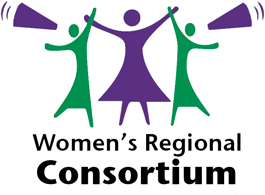Over the last few weeks Women’s Support Network on behalf of the Women’s Regional Consortium have been carrying out research with women across Northern Ireland on the impact of the Cost of Living Crisis. We have talked to around 250 local women about the impact of rising prices on them personally, their children and families. We asked them about the bills they were finding most difficult to pay, their debts, their ability to save and how they are coping with the Crisis. The results are devastating and show the real life hardship and distress caused by rising prices for the most necessary of items including energy and food.
Initial results from the Cost of Living focus groups have shown that 91% of the women said that they were having difficulty paying their bills as a result of Cost of Living increases.
In terms of the bills they are finding it the most difficult to pay the top five were:
1. Food Shopping
2. Electricity
3. Gas
4. Travel (car, public transport)
5. Broadband/Internet bills.
Results from the new research:
- Of the 56% of women who were in debt, 82% said they had to borrow as a result of Cost of Living increases and the borrowing was just for essential bills.
- 62% reported that they had not been able to save recently and 31% said their savings had decreased. This has implications for their financial resilience to income shocks such as a cooker or washing machine breaking down or to cope with increases in interest rates if they are paying a mortgage.
- 90% felt that Cost of Living increases had impacted on their physical or mental health or both. It was clear from talking to women the very obvious connections between Cost of Living increases, debt and mental health issues.
- Of those who had children 78% felt that Cost of Living increases had negatively impacted on their children in terms of activities they were able to do with their children, extra-curricular activities/clubs they are able to be involved in, buying clothing, keeping them warm and getting them treats. Many of the women reported that their children were aware of the Crisis and the lack of money in the house. Some women reported that their children had actually offered them their own money (sometimes from a piggy bank) to try and help with bills.
- 92% of the women felt that Cost of Living increases had impacted on their ability to take part in social activities. Many reported they could have no treats of any kind which had significant impacts for them in terms of their wellbeing and mental health.
The top five ways that women reported coping with rising prices were:
- Buying Cheaper Products
- Cutting energy use
- Using charity shops/second hand websites
- Reducing the use of car/public transport
- Relying on family/friends for help
When asked what would help them cope better with Cost of Living increases the top 5 answers were:
- Increased help with energy bills
- Cheaper public transport/help with fuel costs
- Increases in the value of social security benefits
- Better paid work
- Increased help with housing costs.
Participant Quotes
“Inflation says 10% but everything has at least doubled. Everything is going up more than that. Gas is the same – I just can’t get out of the emergency these days.”
“The extras are all gone now, going out is a luxury, we hardly had it in the first place. Even the special occasion treats are gone now like for birthdays, etc. There’s no spare income for it now.”
“We’re not living, we’re just existing.”
When asked about what needed to be done to make things better the women were incensed about the obscene profits made by the energy companies while they struggled to heat their homes. They were vocal about the need for energy prices to be capped. They wanted to see more support for those on benefits and in low-paid work so that benefits and wages were in line with the actual cost of essentials. Childcare was also raised as a major issue for women, with the costs preventing many women from working or making women who were working feel like they were only working to pay a childcare bill.
When asked about what they think politicians should do to help them many of the women were adamant that our local politicians needed to get back to work to help people navigate their way through this Crisis. In the words of one of the women they felt that local politicians needed to “help their people!”

